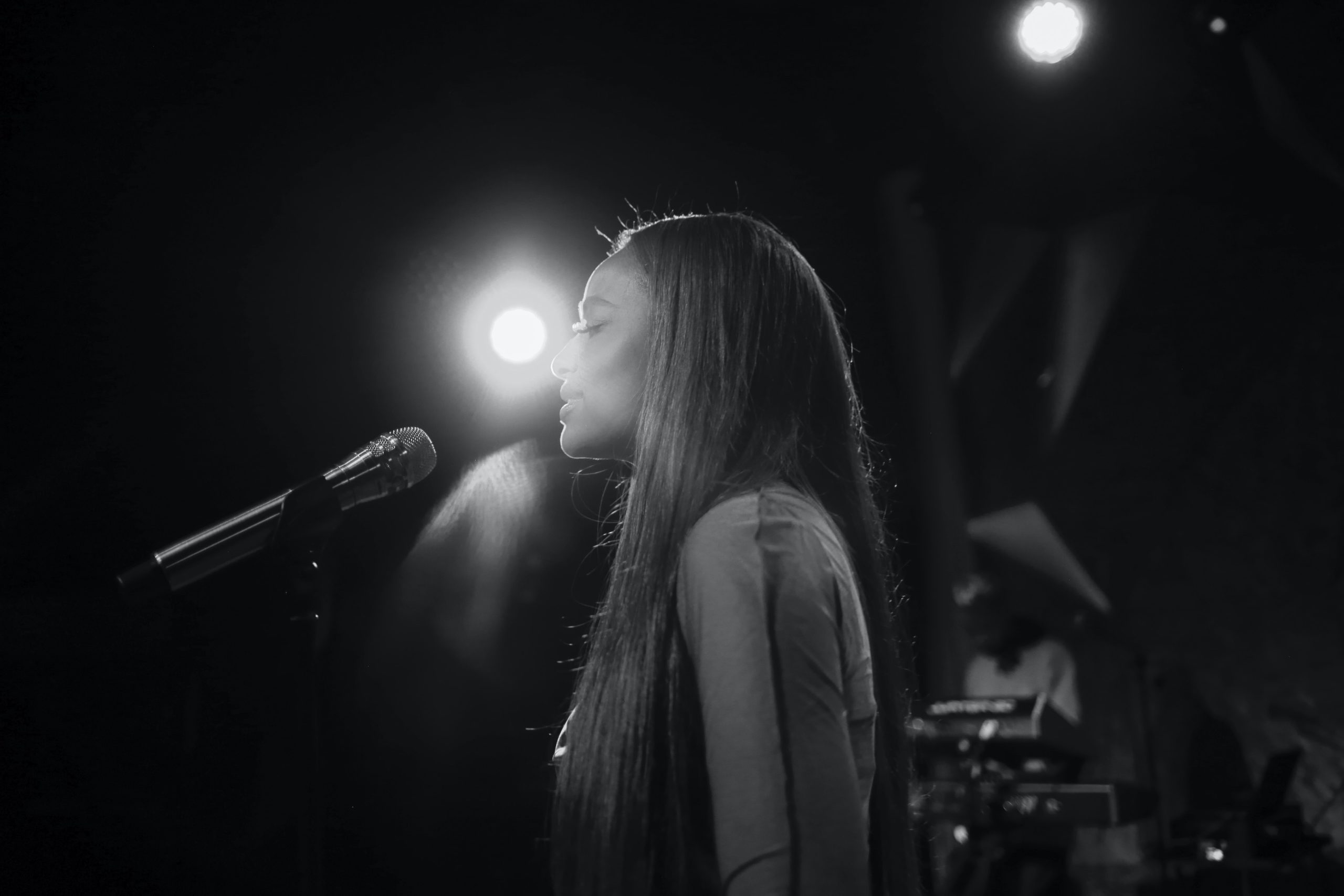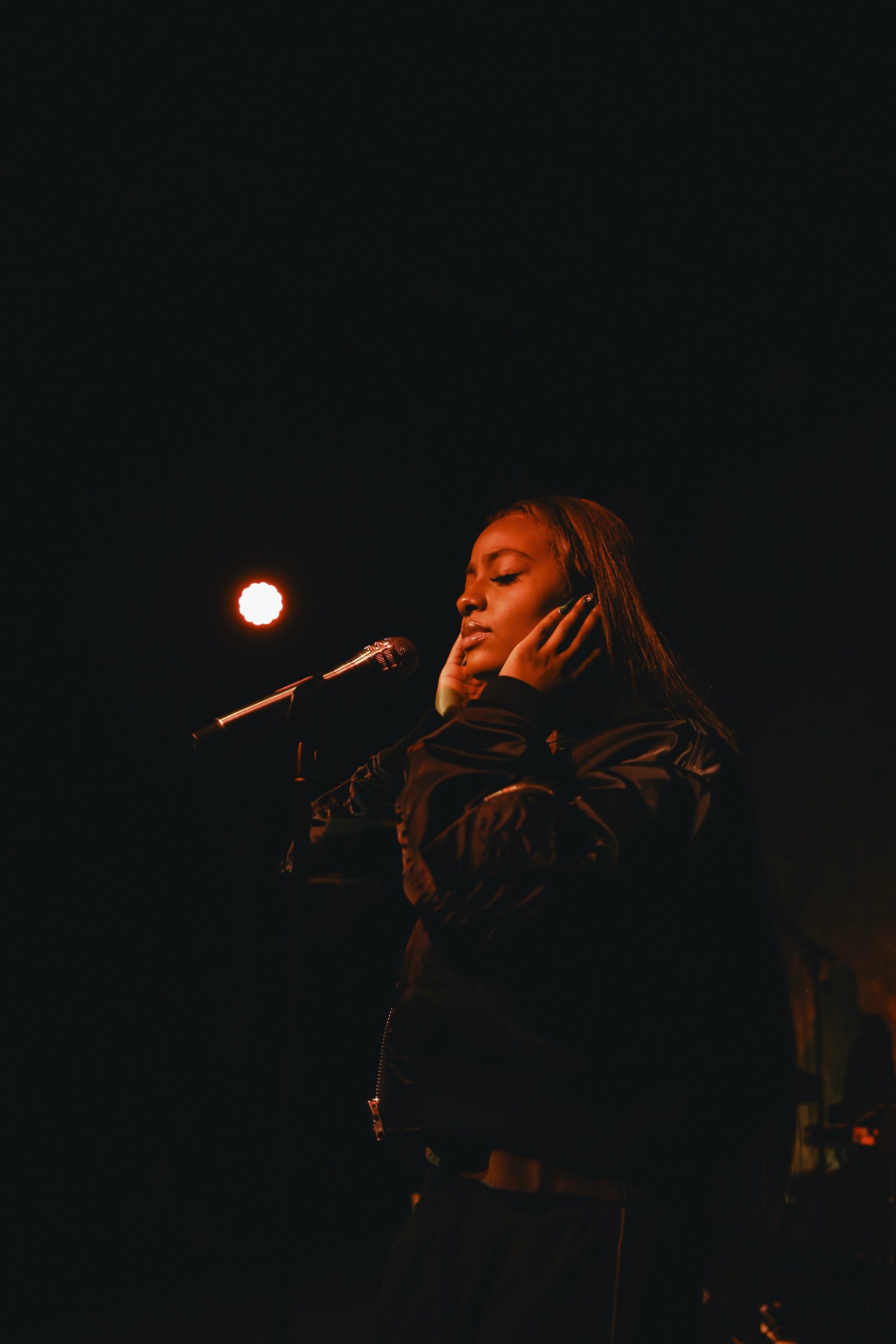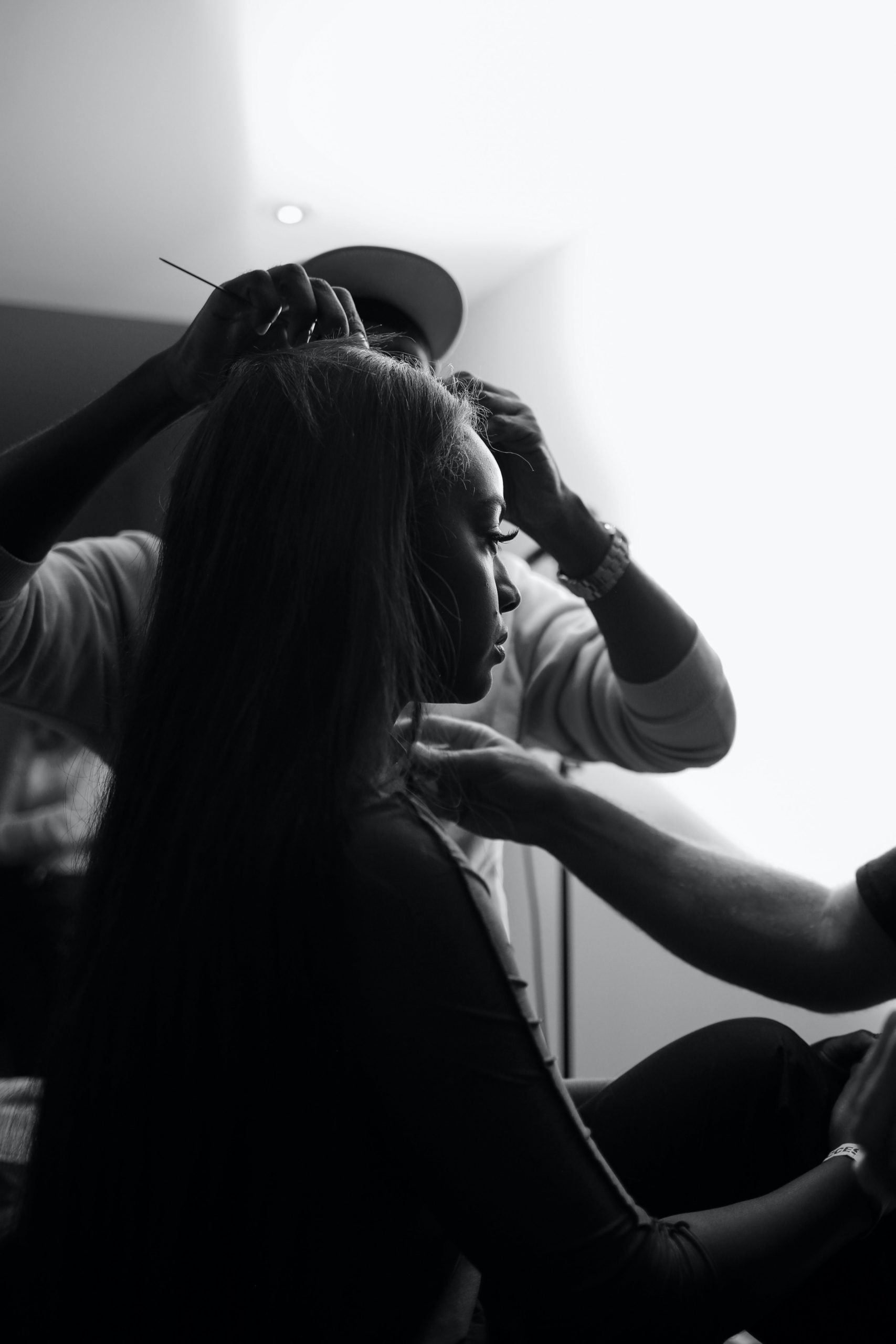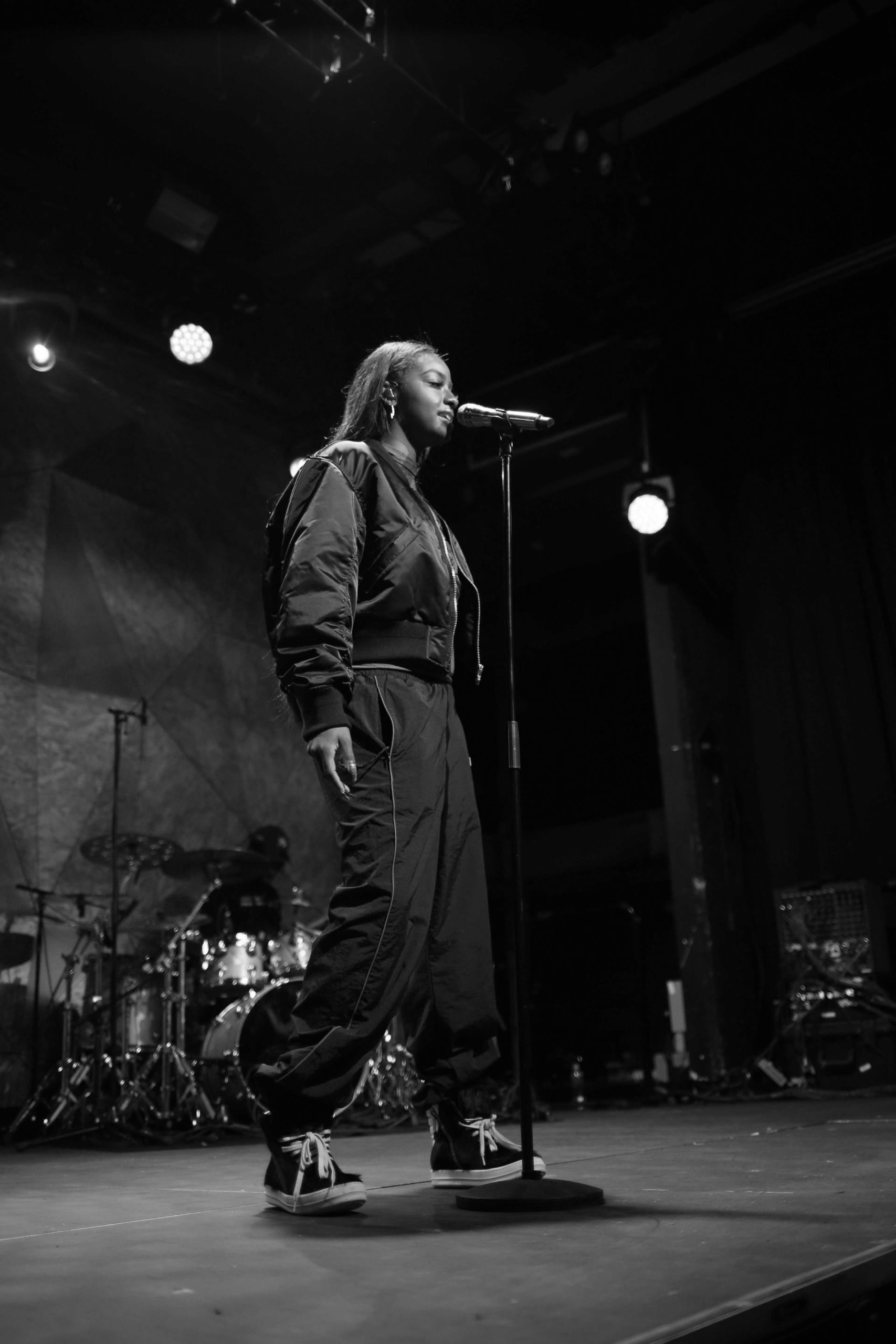MY NEW YORK: JUSTINE SKYE
In V’s premiere episode of “My New York,” Singer-songwriter Justine Skye returns to the stage in her home-borough of Brooklyn

While Justine Skye may stylishly jet set across the states to serenade sold-out arenas, Brooklyn will always be her main stage. Captured in the premiere episode of V Magazine’s new digital series “My New York,” the songstress takes V along on her journey to reintroducing the artist we know as Justine Skye. Described as “A Brooklyn Homecoming” the episode chronicles Skye’s return to her roots, capturing the build-up to the first performance in her home borough in almost two years. Set at the iconic Bushwick venue, Elsewhere, the Brooklynite captivated the audience with chart-topping songs, like “About Time” and “Innocent” from her latest album Space and Time. Commanding the stage in characteristic Justine fashion, both regal and unabashed, Skye’s growth was front and center. After spending quarantine honing her musical skills and whisking up new songs with iconic super-producer Timbaland, the singer-songwriter not only found a new rhythm but ultimately found herself. In an exclusive interview with the singer-songwriter, Skye shared how this period of rediscovery has powered Justine 2.0, “I found that Bad Bitch,” she says. A phrase that acts as both an inward affirmation and outward fact to the singer’s artistry.
Check out the premiere of V Magazine’s “My New York” created in collaboration with MOUSSY VINTAGE and MOUSSY STUDIOWEAR
Stay tuned for new episodes launching every Friday here on Vmagazine.com, the series will spotlight NYC’s movers-and-shakers as they guide us through the formative spots in the city that have inspired and cultivated their craft.
Read the full length interview with Justine Skye below!
V MAGAZINE: Hey Justine! Tonight marks your first show in your home borough in nearly two years. How does it feel to finally be back on stage after this time off?
JUSTINE SKYE: It definitely feels really great to be back on stage. I feel like, besides the actual music, that’s one of the main elements in being an artist—it’s getting up on that stage and performing and just really getting to connect with your fans. I feel like with this new body of work, the person that you see on stage is completely different. If you’ve seen me before, it’s just a different level of music production and energy when it comes to this music and performing.
V: What does it feel like on stage? Can you describe that feeling to me?
JS: I feel like so many people have tried to explain that feeling of what it’s like to be on stage, but until you’ve experienced it for yourself, I don’t think you can put it into words. It’s definitely a crazy feeling. Just to hear the nerves and the adrenaline that rushes through you and the energy that’s coming from the crowd—it’s like no other.
V: Do you find the energy of your performance to be different in each city?

JS: Yeah, absolutely. The energy is extremely different in each city. I’m going up there to do the best show that I possibly can, no matter where I am. Some cities are just more about the turn up, some cities just want to learn about who you are on stage so they’re a little bit more quiet, but that doesn’t mean that they don’t like what’s going on up there. And some cities are indifferent, it really depends.
V: What’s the audience like here in New York?
JS: New Yorkers are stubborn, for sure but I’m pretty sure we all know that. But once you’ve got them, you’ve got them.
V: Once you can make it here, you can make it anywhere. You’re a native New Yorker yourself. You grew up in East Flatbush, which obviously has a strong Caribbean influence and a strong Caribbean community. How do you feel that that community influenced your artistry?
JS: I would say that I grew up in East Flatbush and in the Clinton Hill/Fort Greene area. When I was a child, I was in East Flatbush—when my family came from Jamaica, that’s where they settled down. As I started to get into elementary school, middle school, and high school, I spent those years in the Fort Greene and Clinton Hill area. I feel like that’s more of what I claim, because it helped form the girl that you’re seeing today. I definitely think that Brooklyn as a whole has a lot of influence on my sound. My Caribbean background as well, too—going to the Labor Day parade every year, visiting Jamaica every year and incorporating that sound into my music. That’s something that was very special and important for me.
V: Something that I really like about you is that you’re really proud of your roots, New York and Jamaica. What does being from New York mean to you? Is there an attitude to it?
JS: Being from New York means you’re badass, honestly. I think that New Yorkers are some of the best people in the world. Not saying that we’re always nice, but we’re always pretty honest and we know what we want and we go get it. New York is all about like the hustle, the nitty gritty. Like you were saying, if you can make it in New York, you can make it anywhere.
V: What was your experience like growing up in Brooklyn?
JS: My family was very protective, so it wasn’t like I was hanging outside a bunch. It was very “go here and then come home.” Most Caribbean parents are like that—especially my grandparents because my mom was working a lot. There was no hanging out. I remember the first time I made friends online through Tumblr. My grandfather was like, “oh, do you go to school with them?” And I’m like, “no, I met them online.” He was like, “how does that work? You shouldn’t be friends with anyone other than your family and people at your school.’ And I’m like, “huh, what are you talking about? These people love what I’m doing and I’m expressing myself.” How crazy is that? I feel old talking about the moment where you explained to your parents you can make friends online.
V: How do you incorporate both your New York and West Caribbean cultures into your sound?
JS: I definitely think that with producers that I work with, even without me having a conversation with them, it’s just the aura that I give off in me being a New Yorker, especially from Brooklyn. If you know anything about Brooklyn, you know that there’s a heavy Caribbean side to it. It is a part of the skeleton of Brooklyn. When I go in and I lay melodies, I think of my favorite dance hall songs, my favorite R&B songs, my favorite alternative songs, or just my favorite songs in general and how these artists or these songs would sound on this track.

V: You lived in an environment that valued music as your mother also works in music. Did she influence your desire to work in the industry, too?
JS: My mother always made sure that she put me in performing arts activities, whether it was performing arts school or just an afterschool—just making sure that I was in the musicals at school. Her being in the business side of [the music industry] inspired me and prepared me in a lot of ways, too. I got to see not just the bells and whistles of all of it, but the actual hard work that goes on behind the scenes. And she’s a single mom. She would bring me with her to events or even if she had to get a deal signed or something. I was there to participate in those moments. I met so many people growing up so when it was time for me to become an artist, a lot of people were just like, “oh, you’re Nova’s daughter! Oh my gosh, we know you.” And then it became, “oh, you’re Justine Skye’s mom.” It switched over. I got to see so many artists’ journeys as well. I knew that music is something I always wanted to do.
V: Was there a pivotal moment that you can remember that you were just like, “yes, this is it! This is my passion and what I want to do!”?
JS: Yes! I remember in fifth grade, they were giving out awards for everyone who was graduating from elementary school. This one girl got the best singer award and I was furious because I was just like, “she literally doesn’t even talk, how did he get the best singer?”. I knew that I could sing and I was passionate about it, but I was extremely shy. From that moment forward, I was like, “alright, I’ve got to get rid of these nerves. I gotta try this out for real.” So that was pretty young.
V: I want to throw it back to your “Purple Unicorn” days on Tumblr. I was doing some digging of old interviews and stuff and you talked about how that time of making a community of artists—whether it was upcoming fashion designers, photographers, musicians—really influenced your artistry today.
JS: Back then, those Tumblr days and “The Purple Unicorn” and being more carefree online definitely helped form the woman and the artist that you guys see today. I’ve experienced a lot and I’ve grown a lot since then as well, too, but it definitely is the root of how I got here. When people do research and they realize, “oh, shit she’s actually done a lot of stuff and kind of was one of the pioneers of this social media artistry situation.” I’ve never said that out loud either, but, yeah, I am. Utilizing your fans for your passions and your talent, that’s what was so great about those times. In New York, no matter your passion, we would just meet up and do it whether it was singing, showing people your designs, taking photos, whatever it was that you wanted to do. It was beautiful.
V: What do you feel are misconceptions about the music industry and making it in the music industry?
JS: I feel like a misconception is that people think that it’s easy. They see someone blow up overnight, but nothing happens overnight at all. Even if you never heard of someone one day and now you hear them the next, a lot of preparation goes into what you see on your screen. I don’t think that people appreciate it sometimes. Something that can mean everything to you as an artist is just three minutes for them.
V: Switching gears here, let’s discuss your latest album, Space and Time, which you amazingly coined the “Bad Bitch Manual”. How’d you come up with that?
JS: Space and Time is the “Bad Bitch Manual” because each and every song on this album captured a different side of me as a woman and the journey of becoming more confident as a woman, more confident as an artist. Ultimately when it came down to finishing this project, I felt like that Bad Bitch, I found that Bad Bitch.
V: What did you discover about yourself working on this album?
JS: I wasted a lot of time being scared of what people would think of this or if a black girl could do music like this and just a lot of thoughts and questions that hindered me from being my full self and the full artist that I wanted to be. I discovered that I was an amazing songwriter. I feel like every day we’re learning something new about ourselves, but working on this project, I really was proud of myself as an artist—extremely, extremely proud of myself.

Discover More
